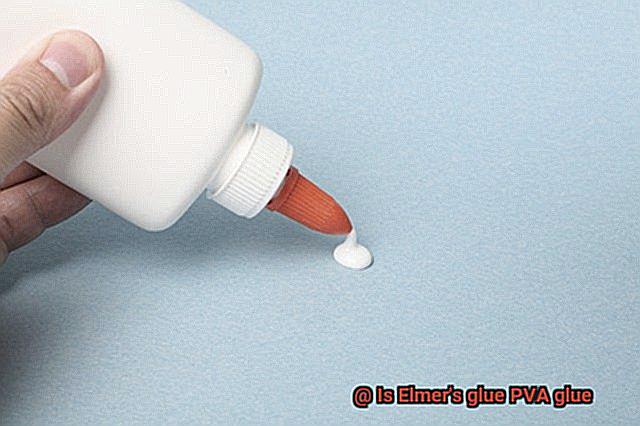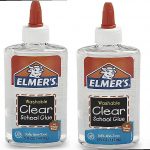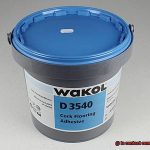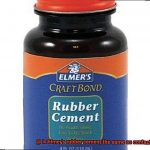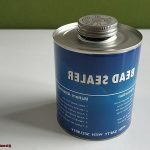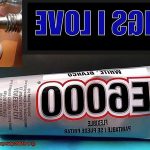If you’ve ever picked up a glue bottle, chances are you’ve come across the iconic name “Elmer’s glue.” But here’s the burning question: Is Elmer’s glue actually PVA glue?
Prepare to embark on an adhesive adventure as we dive into the world of Elmer’s glue, that beloved sticky companion of artists, teachers, and creatives everywhere. We’ll uncover the truth about its chemistry, discover if it truly falls under the PVA category, and explore its wide range of uses.
Together, let’s unravel the mystery behind Elmer’s glue.
What is PVA Glue?
Contents
In this article, we will unravel the secrets behind the popularity of PVA glue, also known as polyvinyl acetate glue. From its water-based formula to its versatility in bonding a wide range of materials, PVA glue has become a staple in the world of glue.
Water-Based Wonder:
PVA glue is the ultimate eco-friendly adhesive. Unlike other glues that require harsh chemicals for application and cleanup, PVA glue is water-based. It’s like magic – just dilute it with water and clean up any mess with soap and water. Say goodbye to toxic fumes and hello to a safe and eco-friendly adhesive.
Quick-Drying Marvel:
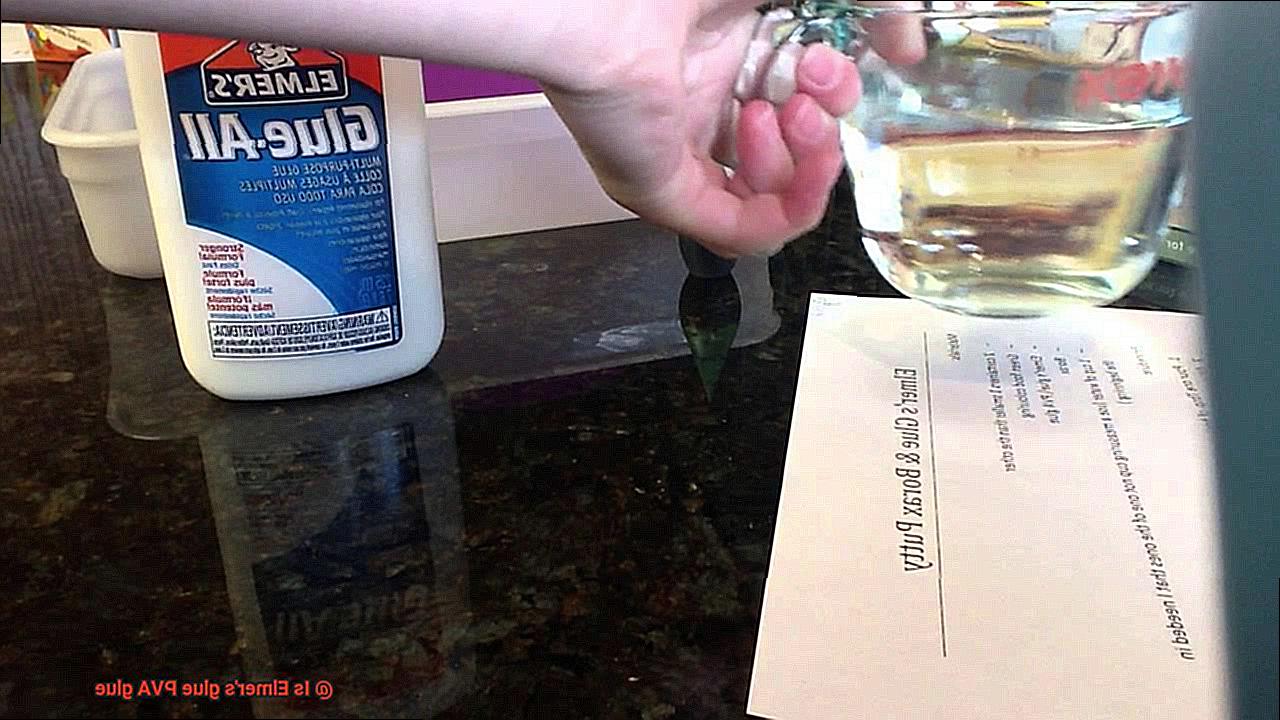
Time is precious, and PVA glue knows that. With a relatively fast drying time – from minutes to hours – you won’t have to wait around. Whether you’re creating a masterpiece or making repairs, PVA glue won’t hold you back.
Versatility at Its Best:
PVA glue is the chameleon of adhesives – it can bond almost anything. Paper, wood, fabric, ceramics, plastics – you name it, PVA glue can handle it. It’s your trusty companion whether you’re an avid crafter or a woodworking enthusiast.
Forms for Every Need:
PVA glue comes in various forms tailored to different needs. The traditional white PVA glue dries clear and is perfect for general crafting. If you’re working with wood, there’s specialized wood glue for extra strength. And for fabric projects that need an extra hold, fabric glue is your best friend.
What is Elmer’s Glue?
Elmer’s Glue is more than just a simple adhesive; it’s a magical potion that brings your creative visions to life. This beloved brand has been a staple in households and classrooms for decades, capturing the hearts of crafters, DIY enthusiasts, and educators alike. So, what exactly is Elmer’s Glue and why is it so highly regarded?
At its core, Elmer’s Glue is a type of white glue that dries clear, making it the ultimate secret weapon for all your crafting needs. Whether you’re designing intricate scrapbooking layouts, crafting beautiful paper creations, or working on any other artistic endeavor, Elmer’s Glue seamlessly blends into your project, leaving no trace of its presence.
What sets Elmer’s Glue apart from other adhesives is its secret weapon: polyvinyl acetate (PVA) glue. PVA glue is a water-based adhesive that boasts exceptional bonding properties. It forms a strong yet flexible bond on porous surfaces like paper, fabric, and wood. This means you can trust Elmer’s Glue to keep your projects intact, no matter how delicate or intricate they may be.
But Elmer’s Glue doesn’t stop there – it prides itself on being user-friendly and efficient. The glue applies smoothly and dries relatively quickly, allowing you to work with precision and complete your projects in no time. And if you happen to make a mess or need to readjust something, fear not. Elmer’s Glue is water-soluble, making cleanup a breeze with just soap and water.
One of the most remarkable features of Elmer’s Glue is its non-toxic nature. This means it’s incredibly safe for children to use, making it a popular choice for classroom projects and creative activities. However, as with any glue, adult supervision is always recommended to ensure the safety of little ones.
Elmer’s Glue comes in a variety of forms tailored to suit your specific needs. From the classic school glue, perfect for everyday projects, to the craft glue, ideal for intricate creations, to the specialized wood glue for woodworking enthusiasts, Elmer’s has you covered.
Is Elmer’s Glue a Type of PVA Glue?
In the vast realm of adhesives, there stands one iconic white bottle that has captured the hearts of crafters and students alike – Elmer’s Glue. But amidst the glue’s popularity lies a burning question: Is Elmer’s Glue a type of PVA glue? Let’s embark on a journey through the world of adhesives to uncover the truth.
Let’s begin by delving into the realm of PVA glue. PVA, or polyvinyl acetate, is a versatile adhesive known for its exceptional bonding capabilities. Woodworkers, paper craft enthusiasts, and artisans alike rely on this adhesive for its strength and durability.
Now, let’s shift our focus to Elmer’s Glue. Yes, Elmer’s Glue is indeed a type of PVA glue. The main ingredient in Elmer’s Glue is none other than polyvinyl acetate, the very essence that binds many other brands of PVA glue together. In essence, when you use Elmer’s Glue, you are utilizing a PVA glue.
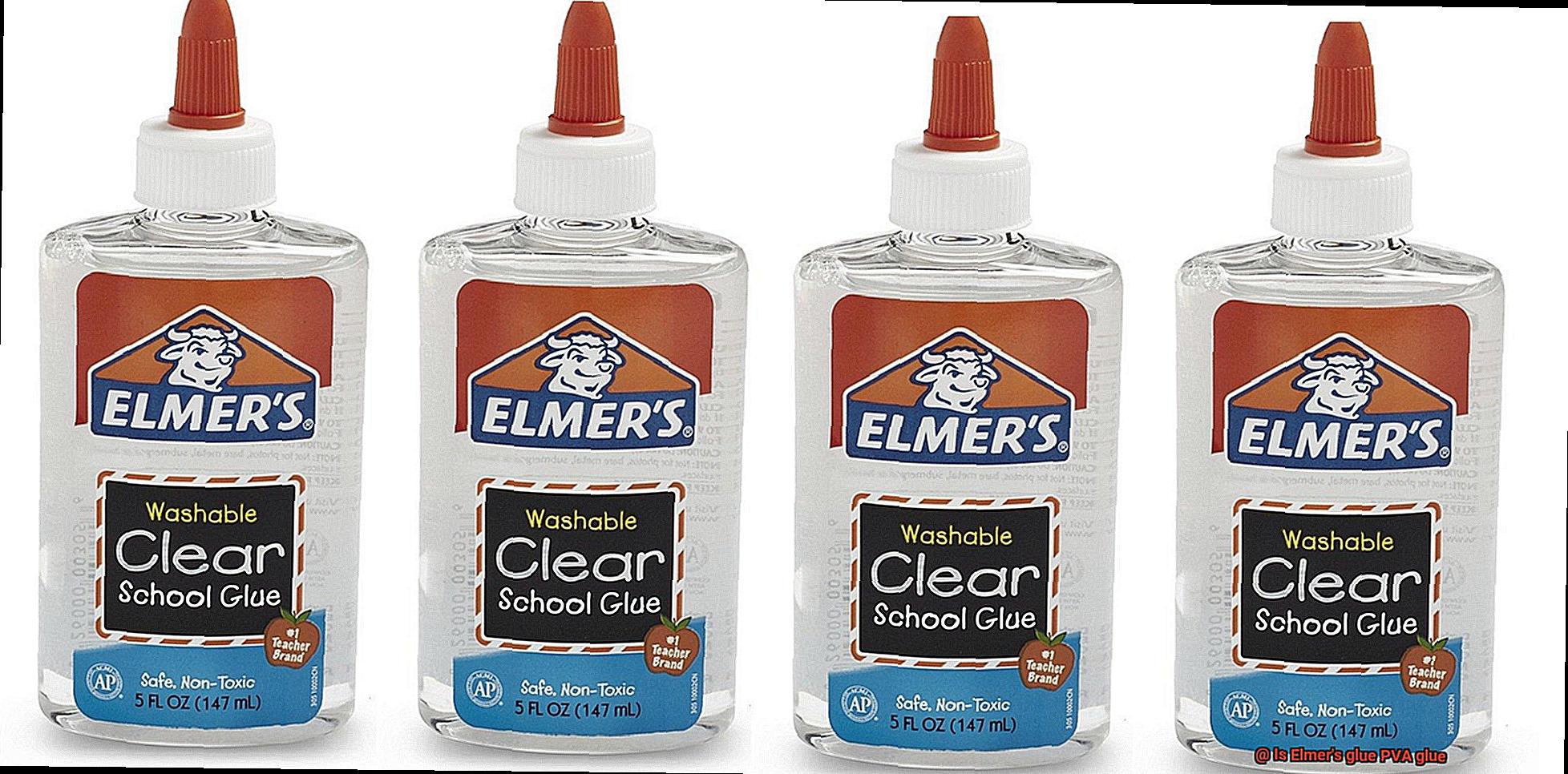
But Elmer’s Glue is not just a one-trick pony. It offers a range of variations to cater to specific needs and preferences. Their classic white glue boasts formidable bonding capabilities on surfaces such as paper, cardboard, fabric, wood, and certain plastics. Its swift drying time and robust bond withstand moderate stress with ease.
Transparent projects demand an adhesive that remains unseen once dry. Enter Elmer’s clear glue – a transparent version of their classic white formula. This invisible adhesive ensures that your masterpiece takes center stage without any unsightly residue.
For educators and parents wrangling with messy children’s crafts, fear not. Elmer’s School Glue is here to save the day. Formulated to be washable and easy to clean up, this magical concoction tames even the messiest of projects.
However, it’s crucial to note that while Elmer’s Glue falls under the PVA glue umbrella, not all PVA glues are created equal. Different brands may exhibit variations in formulations and performance characteristics. Therefore, it’s essential to peruse product labels and instructions to ensure that your chosen PVA glue meets your specific application requirements.
Advantages of Using PVA Glues Like Elmer’s Glue
These versatile adhesives have gained popularity for good reason. Let’s explore the key advantages of using PVA glues like Elmer’s glue in greater detail.
First and foremost, PVA glues excel in their bonding capability. Whether you’re sticking paper, wood, fabric, or even plastic together, PVA glues create a reliable and durable bond that can withstand the test of time. This makes them perfect for projects that require a long-lasting hold.
Additionally, one of the standout advantages of PVA glues is their fast drying time. Unlike some other adhesives that take hours to dry, PVA glues dry quickly, allowing you to complete your projects in no time. This is especially beneficial for children’s crafts or in school settings where time is limited.
Versatility is another key advantage of PVA glues. These adhesives can be used on both porous and non-porous surfaces, making them suitable for a wide range of materials. So whether you’re working with paper, glass, metal, or fabric, you can count on PVA glues to get the job done.
Safety is always a top priority when it comes to choosing adhesives, and PVA glues like Elmer’s glue deliver in this department as well. These glues are non-toxic and safe to use, even for children. You don’t have to worry about harmful chemicals or strong fumes when using PVA glues.
Cleanup is a breeze with PVA glues too. They can be easily washed off with water while still wet, eliminating the need for harsh solvents or chemicals. This not only makes cleanup easier but also reduces the risk of damaging your project or the surrounding area.
PVA glues also offer good resistance to heat and moisture, making them suitable for projects that may be exposed to these elements. Whether you’re creating a piece of art that will be displayed outdoors or a craft that will be used in the kitchen, PVA glues can withstand the conditions.
Last but not least, PVA glues are relatively affordable and readily available in most stores. They come in various sizes and forms, such as bottles or sticks, making them accessible to all types of users.
Different Types of Elmer’s Glue Products
Elmer’s glue is a widely recognized brand that offers a diverse range of adhesive products to suit various crafting, school, and household projects. Understanding the different types of Elmer’s glue products can help you choose the right one for your specific needs.
Elmer’s School Glue
This white, non-toxic glue is a staple in classrooms and art projects. It is easy to clean up and is perfect for paper-based crafts such as collages, scrapbooking, and school assignments.
Elmer’s Glue-All
This multipurpose glue is suitable for a wide range of materials, including wood, fabric, paper, and ceramics. It dries clear and strong, making it ideal for both indoor and outdoor projects. Whether you’re working on a DIY home improvement project or creating intricate crafts, Elmer’s Glue-All is reliable.
Elmer’s Carpenter’s Wood Glue
Designed specifically for woodworking projects, this glue provides excellent bonding strength for porous surfaces like wood, particleboard, and plywood. It dries clear and can be sanded and painted over once dry.
Elmer’s CraftBond
This line of specialized glues caters to different crafting needs. CraftBond Fabric Glue securely bonds fabric and textiles, while CraftBond Paper Craft Glue dries quickly for precise application in intricate paper crafts like scrapbooking or card making. CraftBond also offers glues for leather, metal, and plastic.
Elmer’s Clear Glue
This transparent adhesive is perfect for projects where the glue lines need to be invisible or when working with transparent materials like glass or acrylic. It creates a strong bond without leaving any residue.
Safety Considerations When Using Elmer’s Glue
Elmer’s glue is a beloved crafting essential, but it’s crucial to prioritize safety when utilizing this versatile adhesive. While Elmer’s glue is generally safe for use, there are several precautions that should be taken to ensure a secure and enjoyable crafting experience.
First and foremost, proper storage is key to maintaining the effectiveness of your Elmer’s glue. Store it in a cool, dry place far away from direct sunlight or heat sources. By doing so, you’ll prevent the glue from drying out and guarantee its longevity.
Working in a well-ventilated area is paramount when using Elmer’s glue. Although it is non-toxic, the adhesive can emit fumes that may cause irritation if inhaled in large quantities. To combat this, open a window or employ the assistance of a fan to circulate fresh air and minimize any potential respiratory discomfort.
Avoiding skin contact with Elmer’s glue is essential, especially for extended periods or when handling large quantities. If your project requires frequent handling of the glue, consider donning gloves to shield your skin from prolonged exposure. In the event that the glue does come into contact with your skin, immediately wash the affected area with warm soapy water.
If by chance Elmer’s glue accidentally comes into contact with your eyes, it is crucial to take immediate action. Rinse your eyes with water for at least 15 minutes and seek medical attention if irritation persists. Remember, when it comes to eye safety, it is always better to err on the side of caution.
Elmer’s glue should never be consumed and must be kept out of reach of children and pets. Ingesting the glue can be harmful, so if it happens, seek medical attention immediately and bring the glue container with you for reference.
In the event of spills or accidents involving Elmer’s glue, promptly clean up the affected area using warm soapy water. Be cautious not to spread the glue further and ensure that no additional hazards, such as slipping on a wet surface, are introduced.
If you experience any skin irritation or allergic reaction after using Elmer’s glue, discontinue use and consult a healthcare professional. While rare, some individuals may have an allergic reaction to certain components in the glue.
Drying and Cleaning Up Elmer’s Glue
Elmer’s glue, the reliable adhesive that has rescued countless craft projects from falling apart. But what happens when you find yourself in a sticky situation? Don’t worry. We have your back. In this guide, we will take you through the process of drying and cleaning up Elmer’s glue like a pro.
Let’s start with the drying process. Elmer’s glue is a water-based adhesive, which means it dries by evaporating the water content. The drying time can vary depending on factors like humidity and the thickness of the glue application. To speed things up, grab a hairdryer on low heat or set up a fan to increase air circulation. Be cautious not to use high heat, as it can cause the glue to bubble or warp your project.
Now that your glue is dry and ready to be admired, let’s tackle the cleaning process. If you accidentally got Elmer’s glue on your skin, there’s no need to panic. Simply wash it off with warm soapy water. The glue is water-soluble, so it should come off easily without any harsh chemicals.
But what about those stubborn glue stains on surfaces? Fear not. Grab a dull knife and gently scrape off any dried glue. If that doesn’t do the trick, try using a damp cloth to soften the residue before wiping it away. Remember to be gentle to avoid damaging delicate surfaces.
Now, let’s talk fabric. If Elmer’s glue has found its way onto your favorite shirt or jeans, don’t fret. Start by soaking the affected area in warm water for about 15 minutes. Then, gently rub the fabric together to loosen the glue. Avoid using hot water or harsh chemicals, as they can damage the fabric.
Also Read: Is Elmer’s Glue Eco-Friendly?
Common Applications for Elmer’s Glue
Elmer’s glue, the beloved adhesive that has found its way into classrooms, craft rooms, and workshops worldwide, is a versatile powerhouse for all your creative endeavors. Whether you’re an experienced DIY enthusiast or a novice exploring the vast world of arts and crafts, Elmer’s glue is an absolute must-have in your toolkit.
Let’s delve into the fascinating realm of Elmer’s glue, starting with the basics. Specifically, we’re talking about white school glue, which falls under the category of polyvinyl acetate (PVA) glue. Renowned for its flexibility and user-friendly nature, PVA glue is the go-to choice for countless projects. Now, let’s take a deeper look into the common applications of Elmer’s glue that will leave you inspired and eager to create.
For arts and crafts enthusiasts, Elmer’s glue is nothing short of a game-changer. Seamlessly bonding paper, cardboard, and other lightweight materials, this adhesive is perfect for projects like paper crafts, collages, and even concocting your very own homemade slime. And fear not – its non-toxic formula ensures a safe haven for children to explore their creativity during school projects or those rainy day activities that bring joy to your soul.
But Elmer’s glue doesn’t stop at arts and crafts; it also holds a special place in the hearts of woodworkers. As a wood glue, it effortlessly fuses pieces of wood together with a bond that stands the test of time. Drying clear, it seamlessly blends into your woodworking masterpiece without leaving any unsightly residue behind. And here’s the cherry on top – cleanup is an absolute breeze. No more fretting over messy glue stains ruining your hard work.
Prepare to have your mind blown because Elmer’s glue isn’t just limited to arts and crafts or woodworking. It can also swoop in to save the day during DIY home repairs. From fixing broken ceramics or delicate glass objects to repairing those loose toys or small household items that make your life complete, Elmer’s glue is a trusty companion. Its adhesive properties make it suitable for bonding a wide range of materials together, ensuring that your repairs withstand the test of time.
But wait, there’s more. Elmer’s glue isn’t just a bonding agent; it can also moonlight as a sealant. Simply apply it to surfaces like paper or fabric, and watch in awe as it transforms into a protective layer, safeguarding your precious creations from the clutches of moisture and wear and tear. It’s a simple yet effective way to preserve the beauty and integrity of your projects.
In the realm of education, Elmer’s glue reigns supreme. Teachers and students alike rely on this adhesive for various classroom activities. From arts and crafts projects that ignite imagination to awe-inspiring science experiments that leave young minds captivated, Elmer’s glue is an indispensable tool for hands-on learning. And let’s not forget its potential in the beauty industry. DIY face masks or peel-off masks often feature Elmer’s glue for its gentle, non-irritating nature, offering a touch of luxury to your skincare routine.
Last but certainly not least, Elmer’s glue can be your savior in times of minor household repairs. Need a quick fix while you hunt down a permanent solution? Elmer’s glue has got your back. Its reliability shines through during emergency situations or when time is fleeting, allowing you to restore order without breaking a sweat.
zumPCy2wuKg” >

